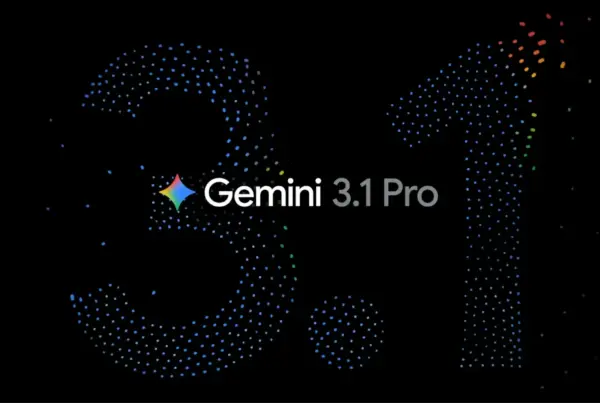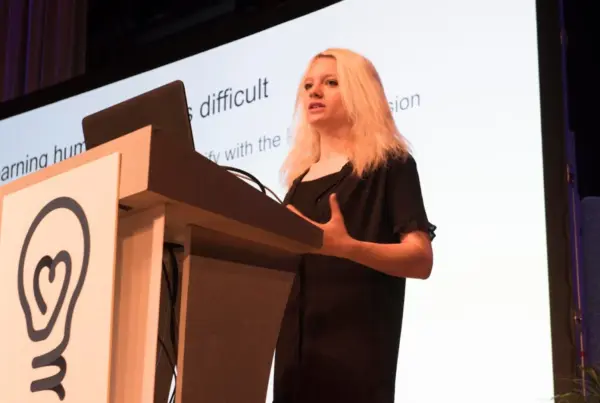Kosmos AI menjadi sorotan dunia setelah Edison Scientific merilisnya sebagai agen riset ilmiah generasi baru. Pada kalimat pertama ini, Kosmos AI langsung muncul karena menjadi inti dalam perdebatan global tentang masa depan penelitian berbasis kecerdasan buatan. Mesin ini dirancang bukan sekadar membaca literatur, melainkan menjalankan rangkaian analisis yang biasanya memakan waktu berbulan-bulan bagi ilmuwan manusia.
Teknologi tersebut muncul di tengah kebutuhan mendesak industri sains terhadap alat yang mampu menembus batas tradisional penelitian. Selain itu, momentum peluncurannya memperlihatkan ambisi Edison Scientific untuk memperluas cakupan eksplorasi ilmiah dengan sistem yang dapat diaudit dan dipertanggungjawabkan.
Sistem Pengetahuan Terstruktur
Kosmos dirancang untuk memproses informasi ilmiah dalam jumlah besar dengan pendekatan yang berbeda dari model bahasa generasi sebelumnya. Pendekatan itu berpusat pada world models, yakni struktur pengetahuan yang menyatukan data dari berbagai disiplin secara berurutan dan berlogika. Dengan cara ini, analisis yang panjang tetap terjaga konteksnya dan tidak mudah melenceng dari tujuan penelitian.
Selain itu, sistem ini menggabungkan ribuan referensi sekaligus, mulai dari makalah metabolomik, genetika, hingga teknologi material. Integrasi ini menciptakan gambaran dunia ilmiah yang direpresentasikan secara komputasional sehingga setiap hipotesis terbentuk dari fondasi data yang kuat.
World models Kosmos AI
World models menjadi inti dari cara kerja Kosmos AI. Mekanisme itu memungkinkan sistem menautkan setiap hasil analisis ke sumber literatur dan baris kode yang relevan. Di sisi lain, struktur berlapis membantu mesin menelusuri hubungan sebab-akibat yang lebih detail dari sekadar korelasi permukaan.
Pada praktiknya, world models memecah masalah menjadi rantai penalaran panjang. Setiap simpul penalaran memanfaatkan ribuan makalah dan jalur analisis statistik yang kompleks. Pendekatan ini membuat Kosmos mampu mempertahankan konsistensi meski menganalisis berbagai topik secara bersamaan.
Akurasi meningkat karena sistem memiliki kemampuan untuk memperbaiki langkah-langkahnya berdasarkan bukti baru. Ketika jalur tertentu tidak relevan, world models memberi tanda untuk berputar arah. Proses ini mirip kerja tim ilmuwan yang terus berdiskusi secara berulang.
Audit pengetahuan
Setiap hasil yang dihasilkan Kosmos dapat ditelusuri kembali ke sumbernya. Fitur itu memberikan transparansi penuh, sehingga komunitas ilmiah dapat memverifikasi kebenaran analisis. Selain itu, mekanisme audit ini penting untuk mencegah klaim tanpa dasar ilmiah.
Proses audit berlangsung otomatis. Setiap pernyataan dilampirkan referensi, kode statistik, dan log analisis. Audit berbasis indeks ini membuat Kosmos menjadi salah satu AI Scientist pertama yang benar-benar dapat diperiksa manusia selangkah demi selangkah.
Audit terbuka ini diharapkan menjadi standar baru bagi penelitian berbasis kecerdasan buatan. Dengan begitu, kolaborasi antara ilmuwan dan AI dapat berlangsung tanpa mengorbankan integritas sains.
Penemuan yang Sudah Dihasilkan

Edison Scientific memamerkan tujuh penemuan awal Kosmos untuk menunjukkan kemampuannya. Beberapa penemuan itu merupakan replikasi akurat dari riset manusia, sementara yang lain tergolong temuan baru. Rentang topiknya luas, mencakup metabolomik, genetika, hingga risiko penyakit kronis.
Selain itu, setiap penemuan dipaparkan dengan jejak bukti yang rinci. Hal itu memungkinkan peneliti memvalidasi kesimpulan tanpa harus mengulang seluruh proses analisis yang menghabiskan waktu.
Analisis metabolomik
Dalam bidang metabolomik, Kosmos menelusuri pola metabolit yang terkait perubahan fungsi sel. Proses itu dilakukan dengan cara membandingkan lebih dari seribu makalah yang berfokus pada jalur metabolik dan kelainan biokimia tertentu. Hasilnya menunjukkan indikator metabolit yang berpotensi menjadi biomarker baru.
Analisis ini melampaui metode konvensional. Mesin bukan hanya menggabungkan data, melainkan menyusun ulang hubungan metabolit secara sistematis. Selain itu, Kosmos memberi rekomendasi eksperimen lanjutan yang dapat diuji laboratorium.
Para peneliti yang menguji hasilnya menyebut pendekatan ini sebagai terobosan karena mempercepat fase eksplorasi hipotesis. Dengan begitu, peneliti dapat langsung fokus pada tahap verifikasi biologis.
Penelitian perovskite untuk sel surya
Dalam sains material, Kosmos mendalami struktur perovskite untuk meningkatkan efisiensi sel surya. Sistem membaca ratusan studi tentang degradasi material dan komposisi kimia. Ia kemudian mensimulasikan mekanisme penguatan struktur agar lebih stabil.
Simulasi itu diterjemahkan ke dalam model prediktif yang menunjukkan kombinasi material paling tahan terhadap kelembapan dan panas. Hal ini relevan karena bahan perovskite dikenal sangat sensitif terhadap kondisi lingkungan.
Selain itu, Kosmos mempertimbangkan variabel biaya produksi. Pendekatan komprehensif ini membantu perusahaan riset melakukan analisis kelayakan sejak tahap awal.
Genetika dan mekanisme penyakit
Kosmos juga menghasilkan pemetaan baru mengenai varian SNP yang berhubungan dengan risiko diabetes. Analisis itu mengaitkan pola genetik dengan perubahan ekspresi protein. Mekanismenya ditemukan setelah sistem membandingkan ribuan dataset genetika populasi.
Pada sisi lain, Kosmos menemukan jalur molekuler yang relevan dengan proses neurodegeneratif termasuk Alzheimer. Temuan tersebut belum sepenuhnya final, tetapi membuka ruang baru untuk penelitian lanjutan.
Dengan kemampuan menggabungkan data genetika dan biologi sel, Kosmos menjadi alat potensial untuk menghasilkan hipotesis penyakit yang lebih menyeluruh.
Kecepatan Riset Setara Bulan Kerja Manusia
Salah satu klaim paling menonjol dari Edison Scientific adalah kemampuan Kosmos menyelesaikan beban kerja ilmuwan dalam jangka waktu berbulan-bulan hanya dalam satu hari. Klaim ini terdengar ambisius, namun perusahaan menyediakan bukti yang cukup kuat.
Selain itu, testimoni pengguna beta memperlihatkan bahwa Kosmos sanggup membaca lebih dari seribu makalah dan menjalankan puluhan ribu analisis dalam satu sesi tanpa kehilangan konteks.
Efisiensi enam bulan kerja
Para ilmuwan yang menggunakan Kosmos mencatat bahwa satu sesi analisis setara empat sampai enam bulan membaca literatur, melakukan coding statistik, dan membangun model prediktif. Pengerjaan masif dan paralel membuat Kosmos unggul dalam kecepatan pemrosesan.
Kosmos juga mampu menjelajahi beberapa jalur penalaran secara bersamaan. Jika manusia harus mengerjakannya secara berurutan, sistem ini dapat membentangkannya dalam struktur bercabang. Selain itu, setiap jalur dianotasi, sehingga mudah dievaluasi ulang.
Kecepatan ini tidak mengurangi ketelitian. Hasil Kosmos tetap dapat diverifikasi karena seluruh proses tercatat detail.
Tantangan dan keterbatasan
Meski unggul, Kosmos tidak sempurna. Sistem kadang memilih jalur analisis yang kurang relevan. Hal ini dapat terjadi jika prompt penelitian dirumuskan terlalu luas atau ambigu. Edison Scientific menganjurkan menjalankan beberapa sesi untuk satu topik demi mendapatkan variasi interpretasi.
Selain itu, penggunaan Kosmos membutuhkan keahlian dalam merancang pertanyaan penelitian yang tepat. Tanpa struktur pertanyaan yang baik, analisis dapat menyimpang. Pengguna akademik mendapatkan free tier, sedangkan harga satu sesi standar mencapai 200 dolar.
Keterbatasan ini menunjukkan bahwa Kosmos bukan pengganti ilmuwan manusia. Namun, ia dapat menjadi katalis besar bagi riset jika digunakan dengan metode yang benar.
Peluncuran Kosmos AI membuka babak baru dalam evolusi penelitian ilmiah. Mesin ini memadukan analisis masif, world models terstruktur, dan transparansi audit yang menjadi dasar integritas sains. Dengan kemampuan mempercepat proses eksplorasi ilmiah hingga berbulan-bulan, teknologi ini berpotensi mengubah cara dunia menghasilkan penemuan. Untuk membaca analisis lanjutan, pembaca dapat menjelajahi artikel terkait di Insimen.
Discover more from Insimen
Subscribe to get the latest posts sent to your email.










































